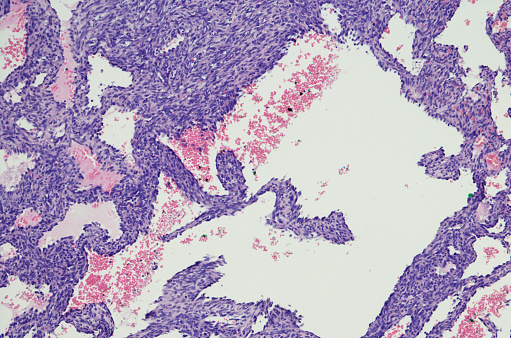Cardiac Angiosarcoma Took Fashion Designer Virgil Abloh at 41 – Some Info about this Rare Cancer

The global fashion world was shocked and saddened to learn that Virgil Abloh, a groundbreaking designer who was men’s artistic director of Louis Vuitton, founder and CEO of the streetwear luxury label Off-White, and Kanye West’s creative director, died after two years of battling an extremely rare form of cancer known as cardiac angiosarcoma. He had been named among TIME magazine’s 100 Most Influential People in 2018 and his work was showcased in an exhibit at the Museum of Contemporary Art in Chicago.
He was only 41. He left behind his wife and two children.
Cancerous tumors develop when the natural life cycle of cells is disrupted in some way. Usually, our cells grow and divide to form new cells as the body needs them. When those cells grow old or become damaged, they die, and new cells take their place. However, when cancer develops, old and damaged cells survive, and new cells form when they are not needed. These extra cells may divide without stopping and may form tumors. In the case of cardiac angiosarcomas, these tumors develop in the blood vessels or muscle of the heart. Most of them affect the right atrium of the heart but they also can develop in the pericardium (the sac that surrounds the heart). The former affects blood flow and the latter the heart’s ability to pump blood. They are extremely rare with about 30 to 40 cases diagnosed each year. Someone with this cancer may not have any symptoms at all or they may have general symptoms such as shortness of breath and chest pain. Since these are also symptom of other diseases – along with this cancer being very rare – doctors may not immediately diagnose it.
They are a specific type of angiosarcoma, a group of cancers that, according to the National Cancer Institute, line blood and lymph vessels. They are identified by where they occur or begin to develop. They are aggressive cancers and spread to other parts of the body.
Other angiosarcomas include those of the skin, brain, liver, and breast. Around 700 cases of angiosarcomas are diagnosed annually. Older adults are more prone to this cancer, and it affects men and women about the same except for liver angiosarcoma and cutaneous (skin) angiosarcoma, which tends to affect men more.
While treatment for cardiac angiosarcoma will depend on each patient, it can include heart surgery to try and remove the tumor or a heart transplant. Unfortunately, with either of these treatment approaches the tumor may return. If the cancer has spread to other parts of the body, doctors may recommend chemotherapy, radiation and/or other treatments.
Even with treatment, cardiac angiosarcomas do not have the most promising prognosis and, sadly, are often fatal. Some estimates are that if a person has surgery and other treatments, they may live for up to 30 months. Without surgery, or if the surgery does not remove all the tumor, life expectancy is greatly reduced to up to nine months.
How to be proactive
Unlike other cancers, such as lung cancer or skin cancer, where the risk factors are well known, cardiac angiosarcoma is so rare that not much is known about specific risk factors. There is some evidence, however, that radiation therapy or being exposed to high levels of specific chemicals such as thorium dioxide (which can be in the water near where thorium is/was mined), arsenic, or vinyl chloride (used to make PVC) may put a person at higher risk.
Of course, we cannot fully control whether we get cancer or not. But fortunately, there are some factors within our control. And some of these factors include diet and other lifestyle habits. In fact, estimates are that up to 30 percent of cancers may be linked to poor dietary habits. The American Cancer Society recommends eating a variety of vegetables (such as leafy greens, carrots and bell peppers) and fiber-rich legumes, including beans and peas. Eating fruits are also recommended as well as whole grains.
You should also try to avoid processed and ultra-processed foods since these are inflammatory foods (they promote inflammation throughout the body). Inflammation is believed to be a major contributor to all types of cancer. Salami, bacon, white bread, candy, soda, chips, and frozen pizza are examples of processed and ultra-processed foods. These foods are generally nutrient-void and have excessive sugar, salt, and unhealthy fats. Also limit sugar-sweetened beverages and alcohol. Last, but certainly not least, be sure to get enough exercise.
I also highly recommend taking routine nutrient tests to determine if you have any nutrient imbalances or deficiencies. Most of us do, and it is harder for our immune systems to work at their full potential and fight off disease if we are not nutritionally balanced. If the test reveals you are not balanced, a competent healthcare professional can work with you on making the necessary dietary changes and recommend quality supplements if necessary.
Enjoy your healthy life!
The pH professional health care team includes recognized experts from a variety of health care and related disciplines, including physicians, attorneys, nutritionists, nurses, and certified fitness instructors. This team also includes the members of the pH Medical Advisory Board, which constantly monitors all pH programs, products, and services. To learn more about the pH Medical Advisory Board, click here.







